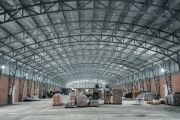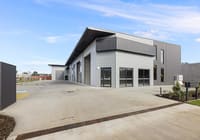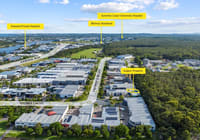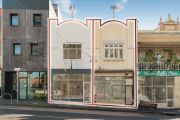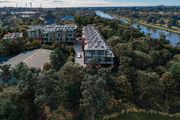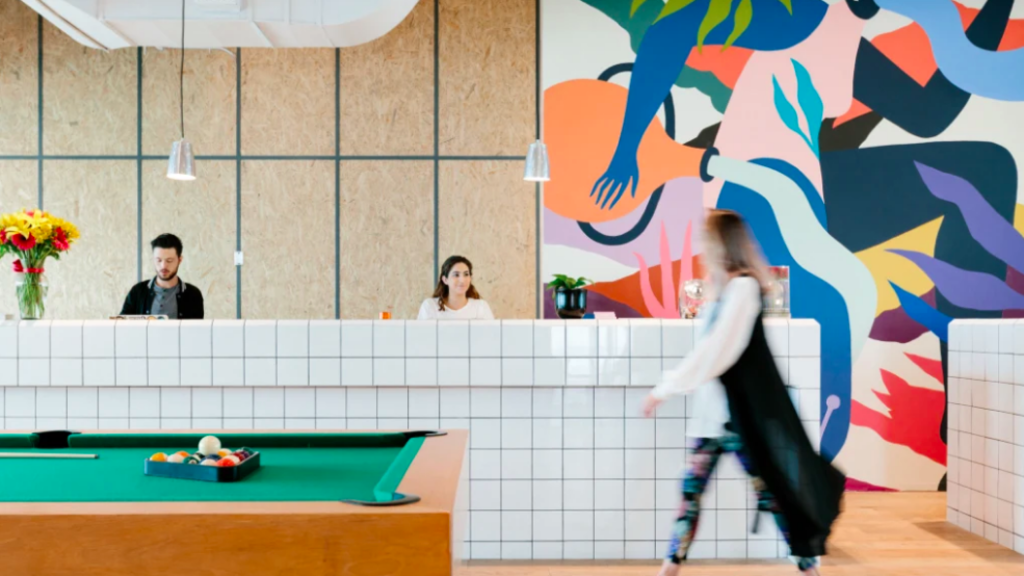
WeWork's rapid roll-out runs out of puff in Australia
WeWork’s rapid expansion in Australia has ground to a halt with two significant office leasing deals between the co-working operator and two of the country’s biggest landlords now dead in the water.
WeWork had been set to strike its largest deal yet in Australia, with plans in play since July for the co-working giant to take up 20,000 square metres across an entire tower at 55 Market Street in Sydney’s CBD, an office building managed by Mirvac on behalf of Chinese sovereign wealth fund China Investment Corporation.
But the deal, which had been in doubt for several weeks, has fallen over and Mirvac must now head back to the drawing board to find another tenant to fill the vast space.
Another big deal that had been in the works, this time in Melbourne with landlord GPT, is also off the table. WeWork had been eyeing off ANZ’s former headquarters at 100 Queen Street with plans to take up as much as half the tower – around 15,000 square metres – but those negotiations have also fallen over, according to market sources.
The co-working giant had also mulled its first real estate acquisition in the local market, a historic building at 401 Collins Street occupied almost entirely by WeWork. The potential purchase from the Liberman family-backed Impact Investment is on ice, if not scuttled completely, according to sources.
A WeWork spokesperson declined to comment. Industry insiders now expect the hubs operator to proceed more cautiously in the local market.
It’s the first evidence of WeWork’s global problems infiltrating the Australian market, after it was reported almost two months ago that the group was putting all new lease agreements with property owners on ice in an effort to rein in costs.
It’s been a disastrous few months for WeWork with its sudden unravelling in August when the company’s paperwork – revealing corporate governance troubles – was made public in the lead up to its highly-anticipated IPO.
In the weeks following, the embattled company lost its chief executive, co-founder Adam Newmann, withdrew its plans to list on the stock exchange and saw its valuation plunge from a high of $46 billion to $8 billion following a bail out by its biggest backer, Japan’s SoftBank Group Corporation.
“I regret I overvalued WeWork while overlooking governance concerns. But its products are really good,” billionaire founder of SoftBank Masayoshi Son said at a press conference about the company’s financial results earlier this month, after it took a big hit to the value of its investment.
WeWork is now reportedly planning to lay off up to 6000 employees, about half of its 12,5000 global workforce, in the next five years, according to The New York Times.
While New York City and London have a much bigger exposure to WeWork – it’s the biggest private sector office tenant in both cities – the co-working operator has also expanded its footprint rapidly in Australia’s large CBD markets since it arrived on our shores in 2016.
It has 16 open co-working locations across the country, in Sydney, Brisbane, Melbourne and Perth.
Over the 2018 calendar year, the company’s future lease commitments in Australia had blown out to $920 million, up from $253 million a year earlier, with the almost billion-dollar debt not recognised as a liability on its balance sheet.

